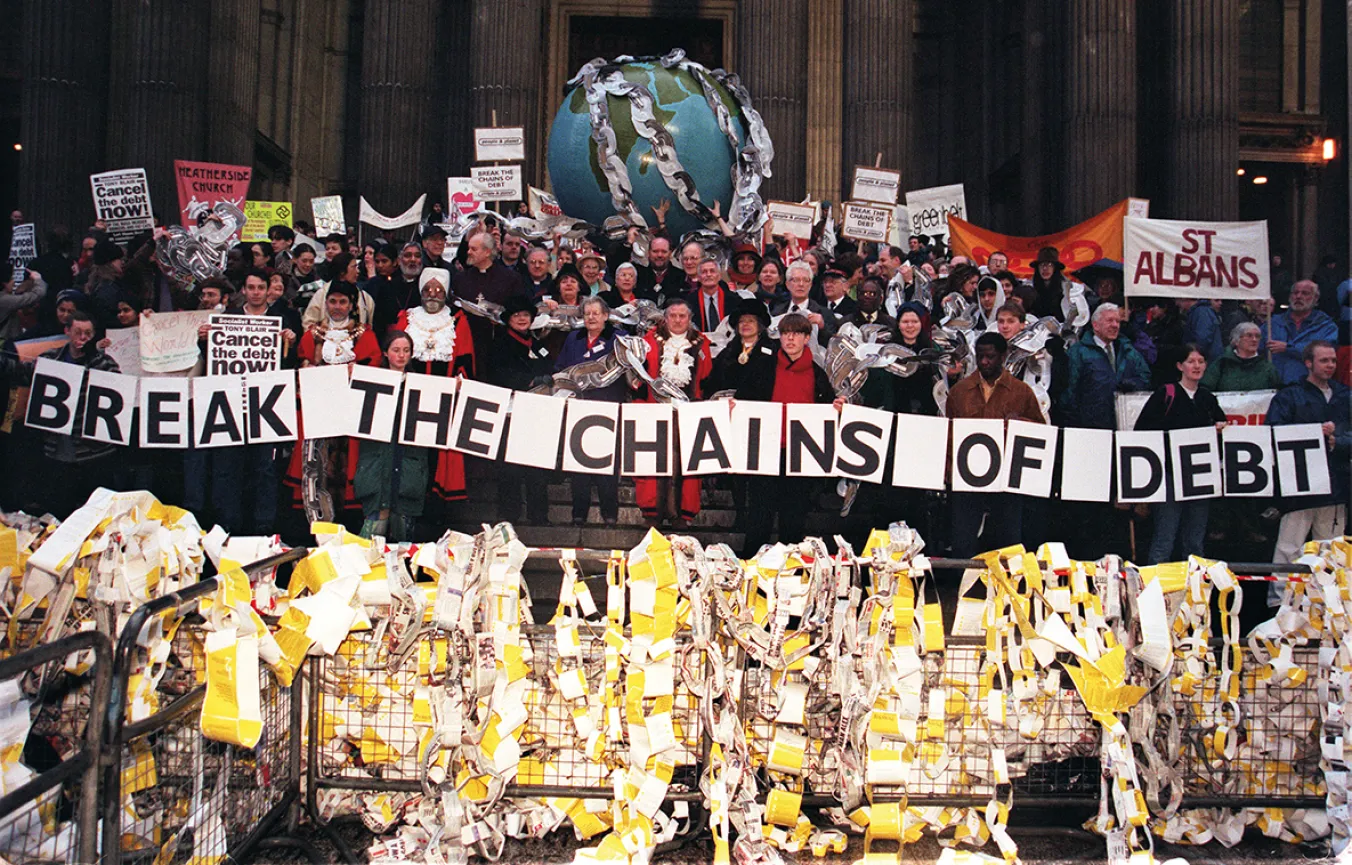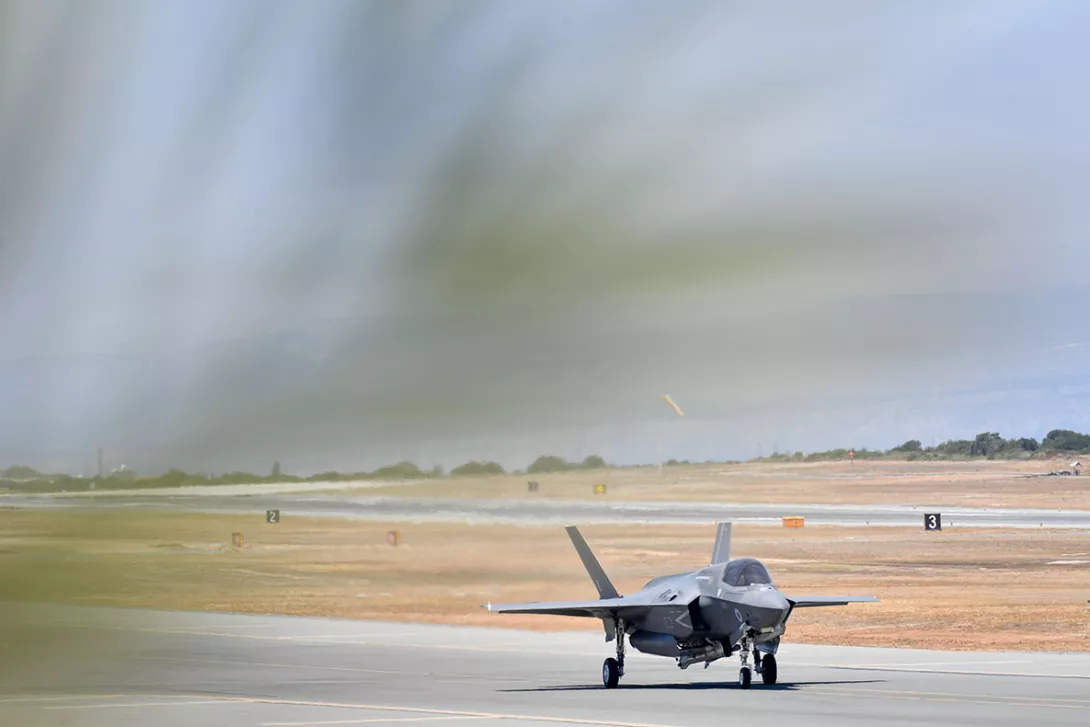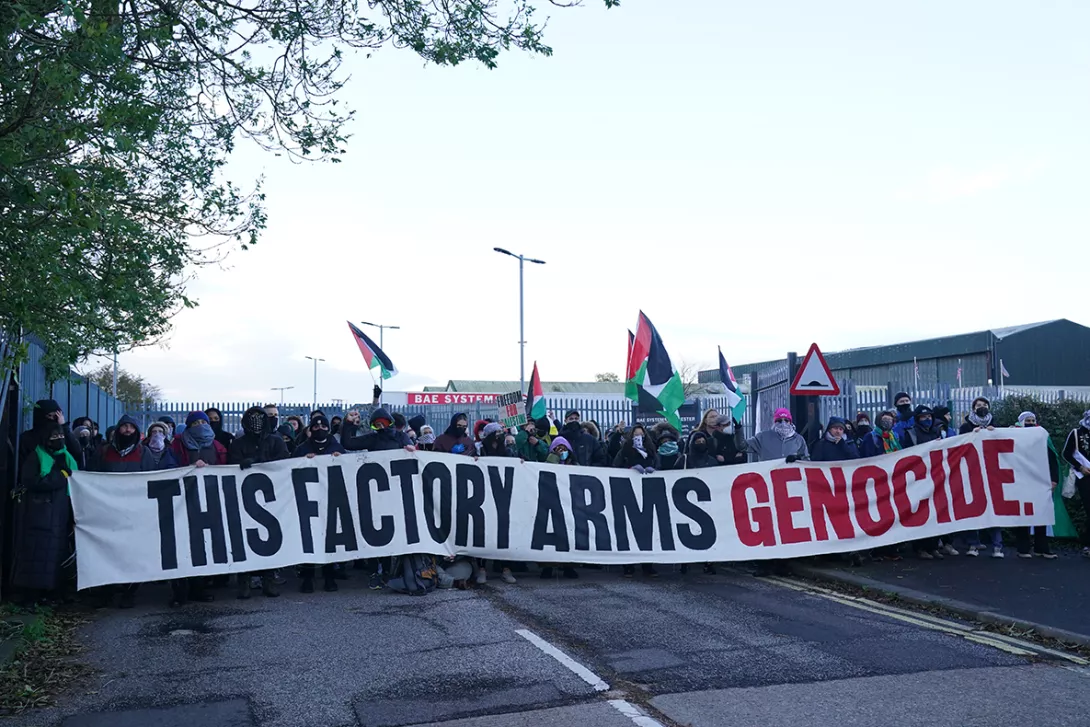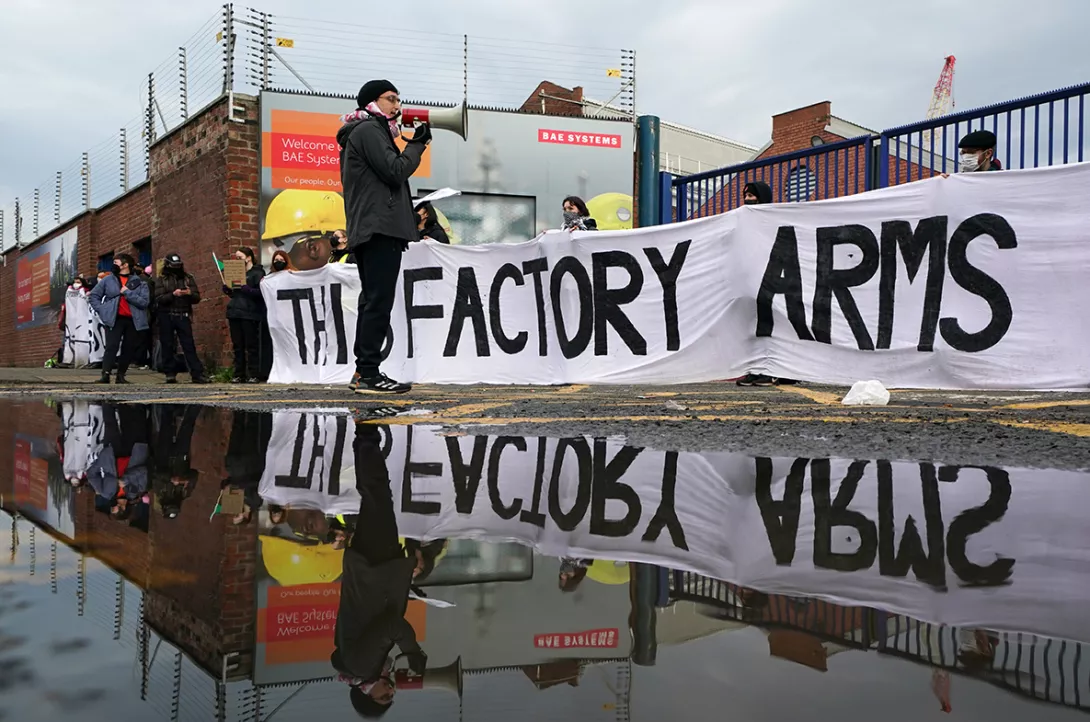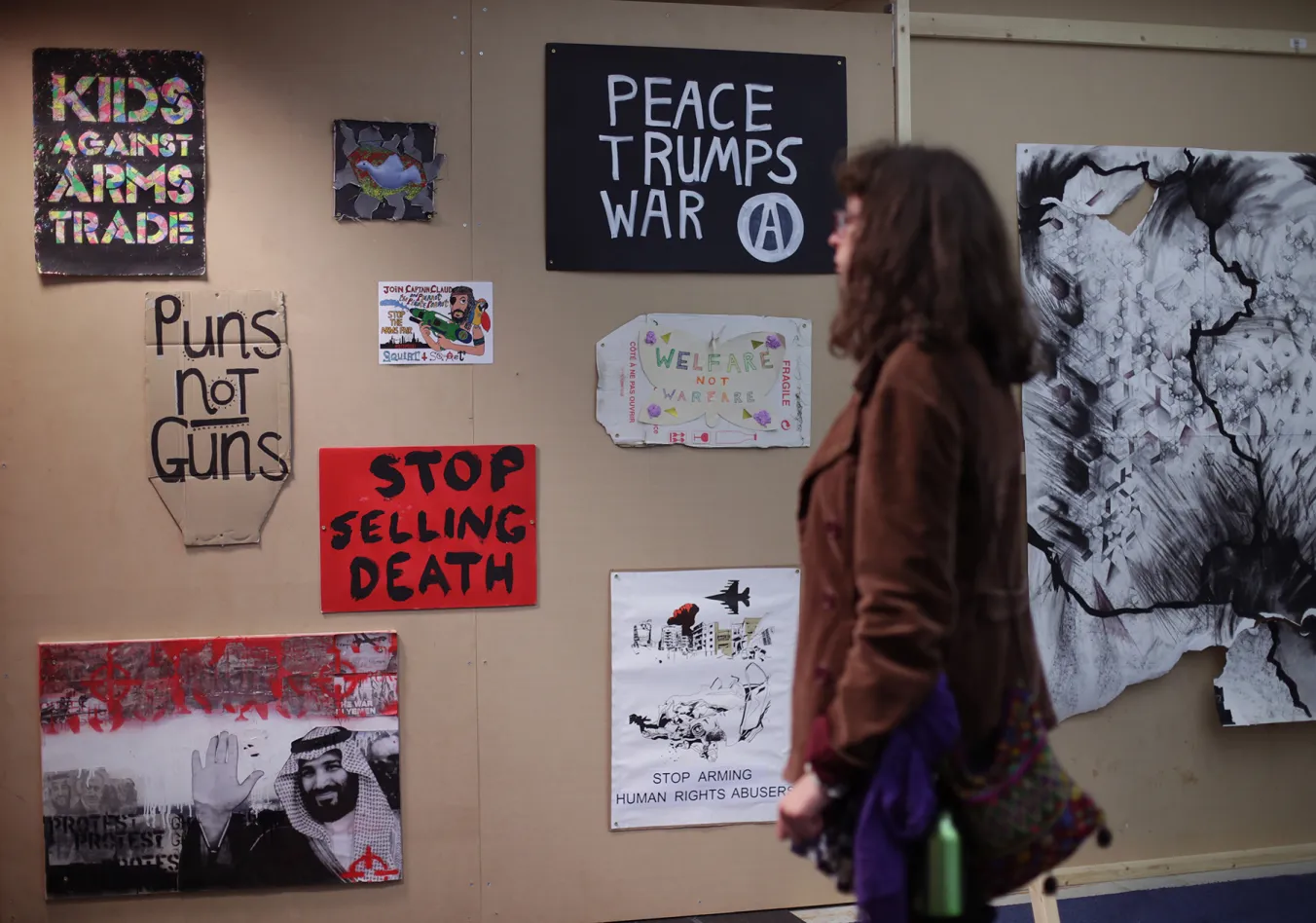
MILITARY conflict and conquest — and the manufacture and sale of arms — has always been central to capitalism. In 1577 Francis Drake set out to plunder Spanish settlements in South America in search of gold and silver. In the process he also challenged Dutch, Spanish and Portuguese interests in the East Indies.
Soon after the defeat of the Spanish Armada the (British) East India Company received its Royal Charter from Queen Elizabeth in 1600. In 1803 the company had a private army of over a quarter of a million — twice the size of the British army.
Following the defeat of Napoleonic France in 1815, Britain expanded its imperial holdings around the globe and its ruling class enjoyed a century of almost unchallenged dominance. The “Pax Britannica” was in fact a continual series of colonial wars, accompanying a rhetoric of “free trade” that gave British capital its dominant position in world commerce.




